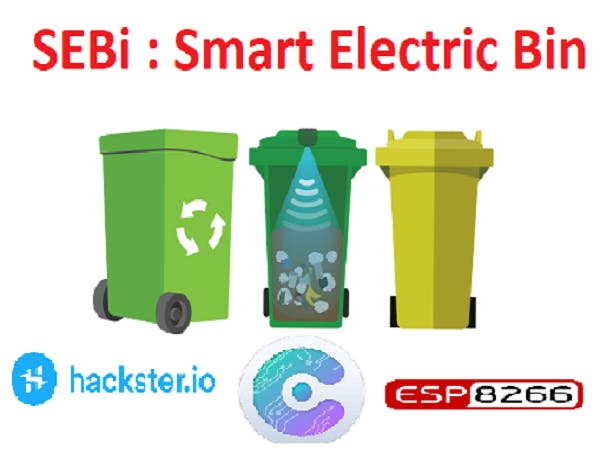- Home
- Hardware
- SDKs
- Cloud
- Solutions
- Support
- Ecosystem
- Company
- Contact
news
ESP8266-based Smart Bin
Reporting from Shanghai, China
Feb 5, 2018
SEBi is a smart waste bin which provides an efficient way of monitoring the accumulation of waste, so it can be disposed of at the right time.
Salman Faris and Muhammed Zain are two young engineers from India who came up with a low-cost plan to optimize waste collection by simply using ESP8266, an ultrasonic sensor, myDevices Cayenne and Arduino IDE. Their project, SEBi (Smart Electric Bin), is predicated on a basic concept: once a smart connected bin is close to getting full, SEBi will notify the waste management agency, so that they can collect the rubbish on time.
Devising a flexible waste collection scheme that can target areas in need of immediate cleaning and avoid delays in all other areas should confer significant benefits. It will prevent the eyesore and hygiene risks that overflowing bins entail. The IoT network of sensor-enabled smart bins would generate a large amount of data, which should be further analyzed and visualized in real time, yielding valuable insights into waste accumulation across extended areas. If such a project is to be implemented on a large scale, it can start by monitoring crowded urban areas, such as railway stations and touristic sites, but it could gradually cover more remote areas in order to maximize the efficiency of waste collection across an entire city.
SEBi is currently powered by Cayenne, a drag-and-drop IoT platform for commercial and home automation projects, and NodeMCU, an open-source IoT platform which includes firmware running on the ESP8266 Wi-Fi SoC and hardware based on the ESP-12 module.
A use case is provided as an example on hackster.io, which shows how can this project be implemented by anyone who would like to monitor their office bins. For all the details and the code that needs to be used, click on here.



 LinkedIn
LinkedIn 微信
微信
 Twitter
Twitter Facebook
Facebook
